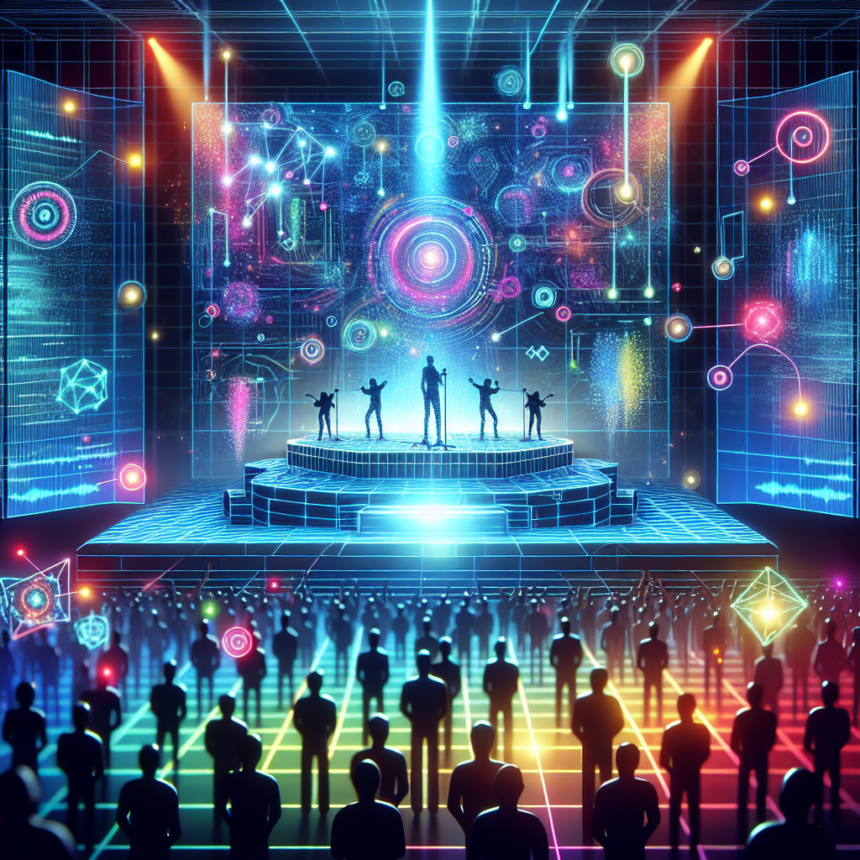As we continue to embrace the digital age, the boundaries between the physical and virtual worlds are increasingly blurring. In recent years, the concept of the metaverse has gained significant traction, especially within the realm of entertainment. Live music concerts, in particular, are undergoing a radical transformation as artists and event organizers explore innovative ways to engage audiences. This article delves into how the metaverse is revolutionizing concert experiences, reshaping the future of live music.
The Rise of the Metaverse
The metaverse is a collective virtual shared space created by the convergence of virtually enhanced physical reality and persistent virtual reality. It encompasses immersive environments where users can interact with digital elements and with each other—think of it as a parallel universe of experiences. Gaming platforms, social networks, and virtual worlds are already laying the groundwork for the kinds of concert experiences that the metaverse promises to deliver.
Enhanced Accessibility
One of the most significant advantages of metaverse concerts is the accessibility they offer. Traditional concerts often involve obtaining tickets, travel arrangements, and sometimes, accommodation. In contrast, attending a virtual concert in the metaverse requires minimal effort—a good internet connection and a device such as a smartphone, tablet, or VR headset. Music lovers from diverse backgrounds and geographical locations suddenly have the world’s stages at their fingertips.
For instance, Travis Scott’s virtual concert in Fortnite not only shattered records in terms of attendance but also showcased how audiences from all corners of the globe could unite in a shared experience, regardless of physical constraints. The beauty of this setup lies in its inclusivity, allowing people who may not otherwise be able to experience live music to participate fully.
Immersive Experiences
The metaverse goes beyond mere visual representation; it offers immersive experiences that were traditionally unimaginable in live music settings. Events can now incorporate 3D visuals, audio enhancements, and even interactive elements that engage the audience in unique ways. By designing environments that complement the music, artists can create multi-sensory experiences that evoke emotion and connectivity.
Imagine a concert where attendees can roam a digitally constructed amphitheater, joining friends in a virtual mosh pit while vibrant color displays synchronize with the beats. These environments allow for exploration and participation far beyond a seat in an auditorium, enabling fans to engage intimately with the artist and their music.
Customization and Personalization
With personalized content set to play a crucial role in the future of entertainment, metaverse concerts can tailor experiences based on individual preferences. Attendees can select different camera angles, choose which artists to watch closely, or even customize their avatars to express their unique personalities.
This level of customization enhances engagement and allows fans to curate their experiences uniquely. As technology advances further, anticipate the rise of AI-driven personal avatars that can mimic fans’ reactions, create real-time feedback, and participate in the concert experience, creating an interactive layer that enhances viewers’ emotional connections.
Artist-Fan Interactions
The metaverse poses exciting opportunities for artists and their fans. Traditional backstage passes can be translated into digital experiences in the metaverse where fans can enter virtual green rooms to interact with their favorite artists, attend exclusive Q&A sessions, or join small virtual jam sessions.
These interactions cultivate a sense of community, allowing fans to feel closer to the artists they admire and enhancing their overall concert experience. Moreover, artists can use the metaverse to release exclusive merchandise and content, offering fans unique, limited-edition items they can’t find elsewhere.
Challenges and Considerations
While the metaverse presents enormous potential for the future of live music, there are challenges to consider. Issues related to monetization, copyright, and digital ownership will need to be addressed. Additionally, a segment of the audience still cherishes the physicality of live concerts, highlighting the ongoing need to balance the virtual and in-person experiences.
Conclusion
As we move forward, the metaverse is set to transform live music into something profoundly innovative and exciting. By offering enhanced accessibility, immersive experiences, personalized content, and meaningful artist-fan interactions, it’s revolutionizing how we experience music. While challenges remain, there’s no doubt that the future of live musical events will be influenced profoundly by the emerging possibilities of the metaverse.
FAQs
1. What technologies are needed to attend a concert in the metaverse?
You need a device with internet access, like a smartphone, tablet, or computer. For a more immersive experience, a VR headset can enhance the event.
2. Are metaverse concerts free to attend?
Some concerts may be free, while others might charge for tickets. Pricing models vary based on the artist and the event.
3. Will metaverse concerts replace traditional live concerts?
It is unlikely that they will completely replace traditional concerts, but they will serve as a complementary experience, making live music more accessible to a broader audience.
4. How can artists monetize their virtual performances?
Artists can monetize metaverse concerts through ticket sales, merchandise, exclusive content, and sponsorship deals.
5. Can I interact with performers during a metaverse concert?
Yes, many metaverse concerts are designed to allow for interaction, enabling fans to engage with artists in real-time or partake in virtual meet-and-greets.









